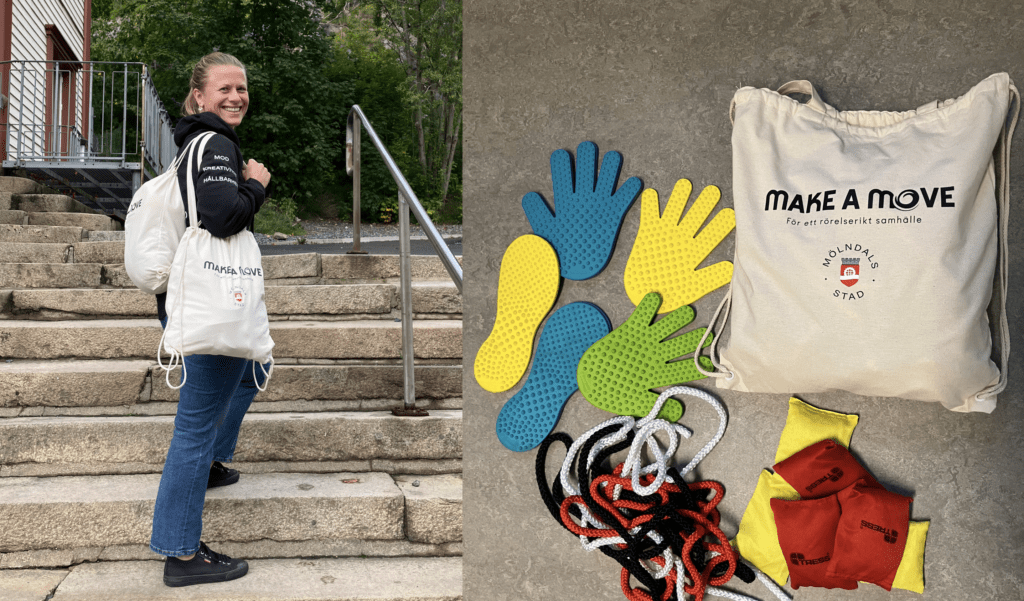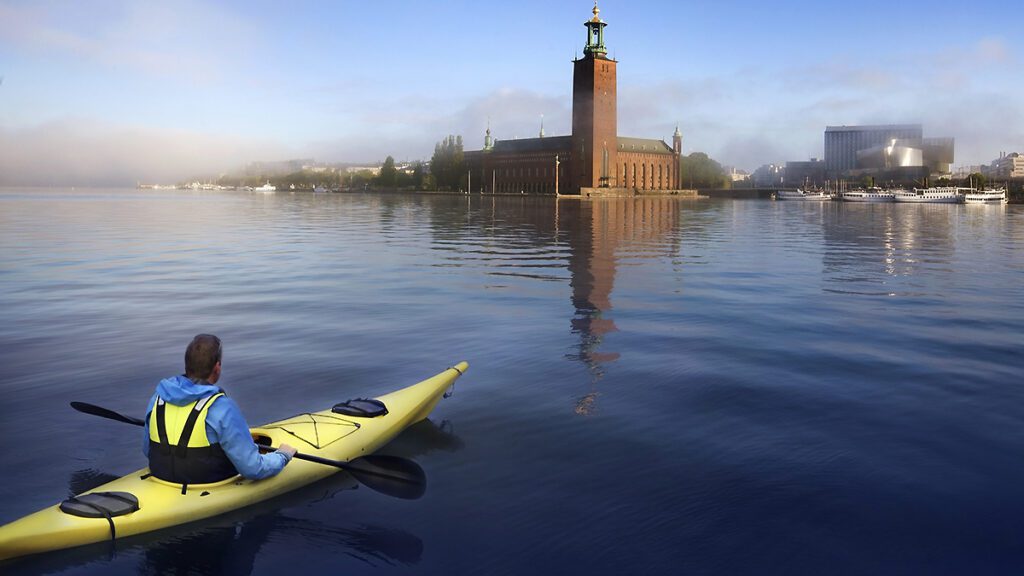Not only children need to move. When the schools in Mölndal were to be activated, movement bags with objects and suggestions for activity were introduced. Soon the idea came to make bags for adults as well, which today are appreciated and useful in different parts of the municipality and in some unexpected ways.
In Mölndal, the Movement in Schools initiative has led to a more mobile everyday life for many school children. A popular tool for introducing physical activity during the school day are bags of equipment used for various playful activities, both during lessons and breaks.
But in Mölndal in particular, sedentary behavior is also very widespread among adults, according to the national public health survey Health on Equal Terms.
"When those of us involved in Make a Move talked about the movement initiative in schools, the bags often came up. Those of us who work in the municipality also sit still a lot during the working day and thought about how we can live as we learn and take more movement breaks. We developed our own bags and started using them in our different activities", says Anna Ekdahl, Public Health Coordinator at Mölndal City.
Each bag contains materials that can be used for suggested exercises with instructions included, and you are free to come up with your own activities. For example, there are rubber hands and feet that can be laid out on the floor or ground for exercises such as non-touching the floor or "twister", where you have to put a hand or foot on the corresponding symbol and can end up in almost impossible body positions. Pea bags can be thrown between people in a circle - more and more bags in the air at once eventually become a challenge to keep flying. Skipping ropes can be used to jump, or why not limbo? And so on.
In the municipality, the bags have been passed around in many different contexts, both in internal meetings at the municipality and events involving residents: Balltorpsdagen, Hållbarhetsfestivalen i Västra Götaland and others.
"They are suitable for many different target groups, which is a great value. During our senior week, older people who walked with walkers could sit down and still participate in the exercises, like catching and throwing scarves between each other. There were as many as 60 people, which was great to see. The interest has been greater than I thought, it is an easy way to get movement with simple means. But you have to take the time to weave the bags into different contexts so that they don't get left behind," says Anna Ekdahl.
In addition, many positive effects follow. The activities become a grateful entry point to explain what physical literacy is in an easy-to-understand way, and why it is important. The joint exercises lead not only to movement, but also to good laughs that build community.
In the Health School initiative, a collaboration with SFI at the adult education Campus Mölndal, foreign-born people receive information about the Swedish healthcare system and advice on self-care to improve their own health. Here, the movement bags have given a new dimension to the meetings as they break language barriers and allow participants to meet in something that unites all people regardless of language and culture: joy.
"Many of the participants speak less Swedish and bring an interpreter to understand the information. But when we put in a movement break and take out the bags, language becomes less important. The dice are particularly popular, when participants can show the rest of the group a physical exercise that corresponds to each number. Spin once, jump once, laugh out loud... Then the dice are rolled and everyone does the movements together. It's a fun moment that lightens the mood of the group. Joy crosses all language boundaries and there is no need for an interpreter for body language," says Anna Ekdahl.
She and her colleagues see that the bags can be of even greater use in more contexts and plans are underway to keep them alive in the future.


